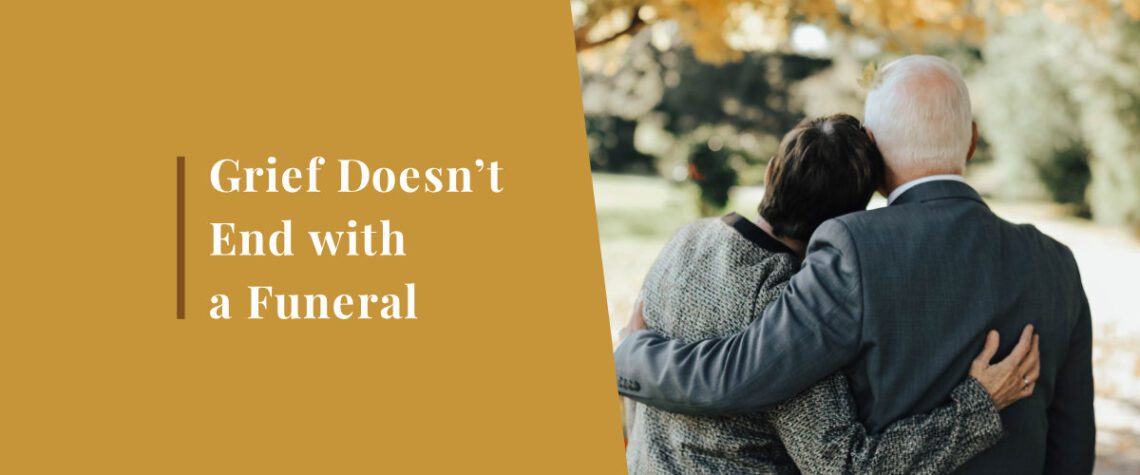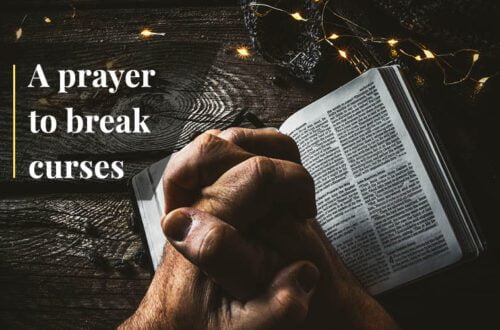
Grief Doesn’t End with a Funeral
Grief is an ongoing undoing of lives; it is the price we pay for a lost intimacy. Grief is love inverted and the cloud of longing which replaces the familiarity of presence.
Abraham came to mourn for Sarah and to weep for her
– Genesis 23:2
Grief silences the seasons and slams the breaks on life. On 19 September 2022, the world mourned for a gracious stranger who felt like family. Never in human history have so many paused for a funeral and felt such grief for losing a monarch. When Queen Elizabeth suddenly passed into glory on 8 September 2022, the British people, many in the Commonwealth and beyond felt time stopped. The second Elizabethan era was over.
The Spirit of the Lord God is upon Me because the Lord has anointed Me…to comfort all who mourn
– Isaiah 61:1-2
In the days to come, the streets filled with weeping people, some crying for the Queen, others for the private grief which found expression in public mourning. One day in Edinburgh, followed by four days in London, thousands queued through the night to pay their last respects to the Queen. For me, there was something cathartic observing large numbers of nameless individuals pass by the Monarch’s Laying-in-State to show their respects, bow their heads and wipe away their tears.
The joy of our heart has ceased; our dance has turned into mourning
– Lamentations 5:15
I found growing compassion for the royal family during this period of mourning. When we lose a loved one, sometimes the day of the funeral feels like, “Something we have to get through,” and it’s not until after the event that we have a chance to reflect and grieve privately. It’s almost impossible to shake people’s hands, thank everyone and fulfil all our duties during the period of mourning, and to mourn. Whilst the Queen’s funeral was aired around the world, it’s estimated over four billion people watched and hundreds of thousands lined the streets, bowing their heads, throwing flowers and trying to hold back their tears.
Therefore, when Jesus saw her weeping, and the Jews who came with her weeping, He groaned in the spirit and was troubled. And He said, “Where have you laid him?” They said to Him, “Lord, come and see.”
Jesus wept.
Then the Jews said, “See how He loved him!”
– John 11:33-36
The day itself was a gruelling journey of grief for the royal family including hours of reflection, walking, processions, bowing and standing, and then being seated again. There were several services throughout the day, songs to be sung, a Christian message to ponder, a reflection, prayers and the question of protocol, including seating arrangements and trying to keep feuding people apart.
Now that the nation has reflected, the royal family can begin to grieve
Restrained grief can often only begin to flow after the funeral ends. No one tells you how much is involved in organising the complex duties, the endless paperwork and the responsibilities of managing the winding up of a life lost. We can become so exhausted with the duty that we barely touch the pain and when we feel it, we just have to put it to the side for the moment.
When the silence ends and people go back to their real lives, then we must face what grief really means – the empty chair, the silence and a new desolate life. At this moment, grief can rush in like a tide and sweep us out into the sea of darkness. The shock of losing someone has given way, the daze of confusion is lifting, the burden of undoing a life is lighter and we’re trying to transition to a new, seemingly emptier life.
Blessed are those who mourn, for they shall be comforted
– Matthew 5:4
Then the questions come. Could we have done more? Why God, why? As the days move to weeks, and the weeks to months, the dreaded special days and seasons arrive. God help us at Christmas, at the individual’s birthday and other special occasions. Never has a chair seemed so empty than on Christmas Day, Thanksgiving or on an anniversary. We believe they live on in Christ, but we still miss holding them.
We are confident, yes, well pleased rather to be absent from the body and to be present with the Lord
– 2 Corinthians 5:8
Time is a promising healer, but grief can be like a weather pattern that refuses to shift. God save us from the never-ending rainy season of clouds and darkness. The loss can remind us how selfishly guarded we were, protecting our little kingdom of love until it was shattered and now we need others outside of our once sheltered existence.
In the Old Testament, God’s people were instructed to grieve for a certain period, often forty days. They weren’t rebuked by their prophets and told to, “Move on,” in celebration, but to give themselves time to process loss
In periods of mourning, the sadness and questions in the Psalms, Lamentations and the struggles of Job remind us that grief represents a gift given to us by God to help us transition to our new life. Holy Scripture nudges us to accept God sees our pain and is willing to help us, as we surrender it to Him.
The Lord is near to those who have a broken heart
– Psalm 34:18
If the person we lose is elderly or ill, we may have been quietly grieving before the moment we lost them. A funeral suggests a sudden closure, but in real life, things may get worse before we start feeling better. There is no timetable for mourning, some people grieve over a few months, others for years.
I bowed down heavily, as one who mourns for his mother
– Psalm 35:14
The withdrawal of the tide of loss happens in connection to the bond we developed over time. The depth of our love can be measured in the duration of our grief. But we must be careful not to be swallowed by grief and we may need to cast out, or off, the spirit of grief that seeks to exploit our sorrow and steal tomorrow’s joy.
But I do not want you to be ignorant, brethren, concerning those who have fallen asleep, lest you sorrow as others who have no hope. For if we believe that Jesus died and rose again, even so God will bring with Him those who sleep in Jesus
– 1 Thessalonians 4:13-14
Grief can equally make us act strangely and subvert our foundation. When C.S. Lewis’ wife Joy died after four years of marriage, he chronicled his thoughts of anger, bitterness and grief. Lewis was so concerned about his aggressive writing that he published his book, A Grief Observed, under the pseudonym N.W. Clerk. I was shocked by the depth of his anger and questioning when I read it, but he confessed with honestly that he was on a journey through grief.
“You can’t see anything properly while your eyes are blurred with tears,” explained Lewis. During his mourning, he found, “Not my idea of God, but God,” and the presence of the Lord declaring, “Peace, child; you don’t understand.”
A Grief Observed by C.S. Lewis
C.S. Lewis’ personal thoughts about suffering differ from his theological observations made twenty years early in his book The Problem of Pain.
“Pain is God’s megaphone to rouse a deaf world,” Lewis declared, “We’re like blocks of stone out of which the Sculptor carves the forms of men. The blows of his chisel, which hurt us so much, are what make us perfect. The suffering in the world is not the failure of God’s love for us; it is that love in action. For believe me, this world that seems to us so substantial, is no more than the shadowlands. Real life has not begun yet.”
The Problem of Pain by C.S. Lewis
Nothing can prepare us for grief. It’s a path that must be walked one step at a time. It may take all our strength just to take a single stride forward and we may only find the courage to get through the next day or hour. However long our mourning lasts, we must trust in Christ and listen to the wisdom of Solomon.
There is a time to weep and a time to laugh; a time to mourn and a time to dance
– Ecclesiastes 3:4
Like the people in the Bible, we must grant ourselves permission to grieve. You may want to talk through your grief with a trusted person or write down your unedited thoughts in confidence and offer them to God as a prayer. You may want to visit the places with cherished memories from the past, surrendering them to God and weeping in your heart. You may need to reach out for help from others.
I go about mourning, but not in the sun; I stand up in the assembly and cry out for help
– Job 30:28
We may celebrate a life that is lost, but we must grieve as well. Let’s not pretend life is going to be the same again. It may help to picture that person in Heaven. If the individual was not a believer, remember, we can never know what transposed between a sinner and the Saviour in the last second of their heart. Did the family of the thief on the cross know he repented and was promised paradise in his last moments?
But the other, answering, rebuked him, saying, “Do you not even fear God, seeing you are under the same condemnation? And we indeed justly, for we receive the due reward of our deeds; but this Man has done nothing wrong.”
Then he said to Jesus, “Lord, remember me when You come into Your Kingdom.”
And Jesus said to him, “Assuredly, I say to you, today you will be with Me in Paradise”
– Luke 23:40-43
Faith does not signify a life without feeling. We trust in God and weep. We believe in the comfort of the Holy Spirit and mourn the person we lost. We celebrate the hope of Heaven and endure the pain of a cupboard full of clothes for someone who will never need them, an empty chair and a no-longer-used mug. We must talk about them and move forward.
Life goes on and we must start our new story without them, even if we can’t face it. Others are depending on us, therefore, we must bear the unbearable because life must be lived. We grieve because we loved; it is the evidence of a well-lived life, and we will laugh once more and experience the promise of Jesus Christ.
Now is your time of grief, but I will see you again and you will rejoice, and no one will take away your joy
– John 16:22
- Recent Articles
- Peace of Mind
- The End Times
- Christian Revival
- The Faith of Queen Elizabeth II
- Current Events from a Christian Perspective
- The Royal Collection & the Faith of Queen Elizabeth II
- Christianity & Architecture: Big Ben, the Bible & the Elizabeth Tower
- Christianity, the Bible & Parliament: The Palace of Westminster
By Paul Backholer. Find out about Paul’s books here.




